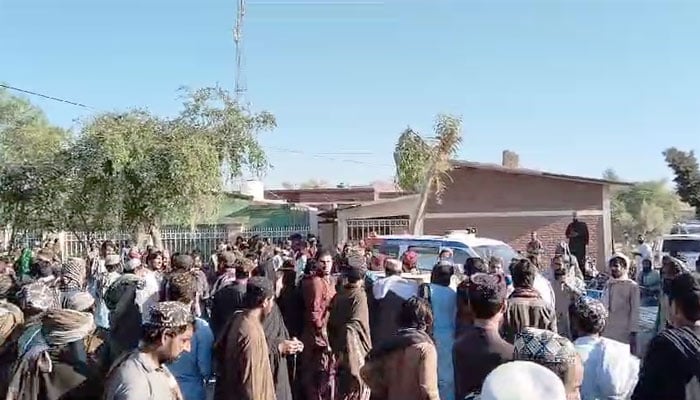Protests have erupted in Duki, Balochistan, following a deadly attack that killed at least 20 miners and left seven injured. This rocket attack on coal mines has intensified concerns about violence in the southwestern province.
Humayun Khan, the police station house officer for Duki, reported that “a group of armed men attacked the mines in the Duki area in the wee hours.” The assailants used heavy weapons, firing rockets and grenades at the mining site. The mineral-rich region has long faced violence, given its proximity to Afghanistan and Iran.
No group has claimed responsibility for the brutal attack. In response, local citizens staged a demonstration at Bacha Khan Chowk, carrying the bodies of the slain miners. Traders also announced a shutter-down strike across the district in condemnation of the horrific violence. All trade centers and markets remained closed on Friday.
The area surrounding the coal mines was cordoned off by police and Frontier Corps personnel. A search operation commenced shortly after the assault. The injured miners and the deceased were rushed to Teaching Hospital Loralai for medical attention.
Initially, police reported the deaths of two miners. However, the death toll quickly rose to 20, as confirmed by Medical Officer Dr. Johar Sadozai. He noted that two of the deceased miners were from Pishin, two from Qila Saifullah, one from Kuchlak, and three others had come from Afghanistan for work.
Haji Khairullah Nasir, the owner of the coal mines, stated that the attackers not only assaulted the site but also set the mining machinery on fire.
In light of the tragic events, Balochistan Chief Minister Sarfaraz Bugti condemned the attack. He pledged to take action against the “terrorists” responsible. Bugti described the attackers as “terrorists working on the agenda of destabilizing Pakistan,” emphasizing that laborers are often soft targets in such cowardly acts.
Since the Taliban’s return to power in Afghanistan in 2021, Pakistan has seen a surge in militant attacks. While Khyber Pakhtunkhwa has been the hardest hit, Balochistan has also faced increasing violence.
In June, the federal cabinet approved Operation Azm-e-Istehkam, a renewed national counter-terrorism campaign aimed at rooting out terrorism. This effort follows recommendations from the Central Apex Committee under the National Action Plan.


